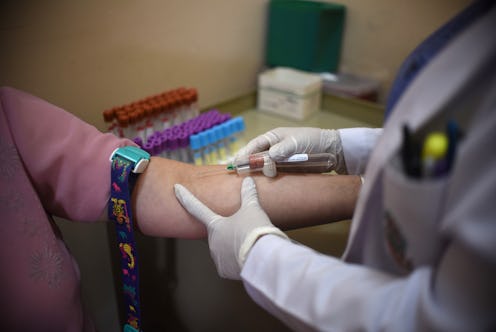News
157 Pregnant U.S. Women Test Positive For Zika
The U.S. Centers for Disease Control and Prevention said at least 157 pregnant women had tested positive for the Zika virus in the United States with another 122 women believed to be infected in the U.S. territories. All 279 pregnant women are being monitored by the CDC, the national public health institute said. But don't be alarmed by the sudden spike in Zika cases. The number reported Friday, although more than double that which was previously reported, represents a change in how the CDC is reporting Zika cases and is not representative of a dramatic jump in infections.
CDC officials said Friday they were ditching their previous reporting criteria, which defined a person with the Zika virus as an individual exhibiting symptoms or Zika-related pregnancy complications and a positive blood test, in favor of reporting all incidents where the patient tested positive for the virus regardless of whether they also showed symptoms. "Recently published reports indicate that some pregnant women with laboratory evidence of a recent Zika infection but without symptoms have delivered infants with microcephaly and other serious brain defects," the CDC said in a statement explaining how the number of Zika cases in the United States more than doubled overnight.
In an effort to monitor the 279 pregnant women who have tested positive for the virus the CDC has established two "enhanced surveillance systems" — the U.S. Zika Pregnancy Registry and the Puerto Rico Zika Active Pregnancy Surveillance System. Through the new systems, the CDC hopes to "provide a more comprehensive picture of the effects of Zika in U.S. states and territories." Ultimately the organization is aiming to collect and share information that may "help healthcare providers as they counsel pregnant women affected by Zika" and be used in "planning at the federal, state, and local levels for clinical, public health, and other services needed to support pregnant women and families affected by Zika."
While Zika is spread primarily through the bite of an infected mosquito, the virus can also be contracted through sexual contact. Although symptoms of the Zika virus disease are relatively mild — fever, rash, joint pain, and conjunctivitis — it can, the CDC says, cause microcephaly or other fetal brain defects. Hundreds of babies have reportedly already been born with microcephaly, a rare neurological condition in which the brain does not properly develop and marked by an abnormally small head, in Colombia and Brazil following an outbreak of the virus last year.
Although the largest number of Zika cases have so far been found in Puerto Rico, pregnant women have tested positive for the virus in Wisconsin, Washington, D.C., and Connecticut after contracting it during travels to Central America. However, no locally acquired vector-borne cases have been reported in the United States at this time, according to the CDC.
